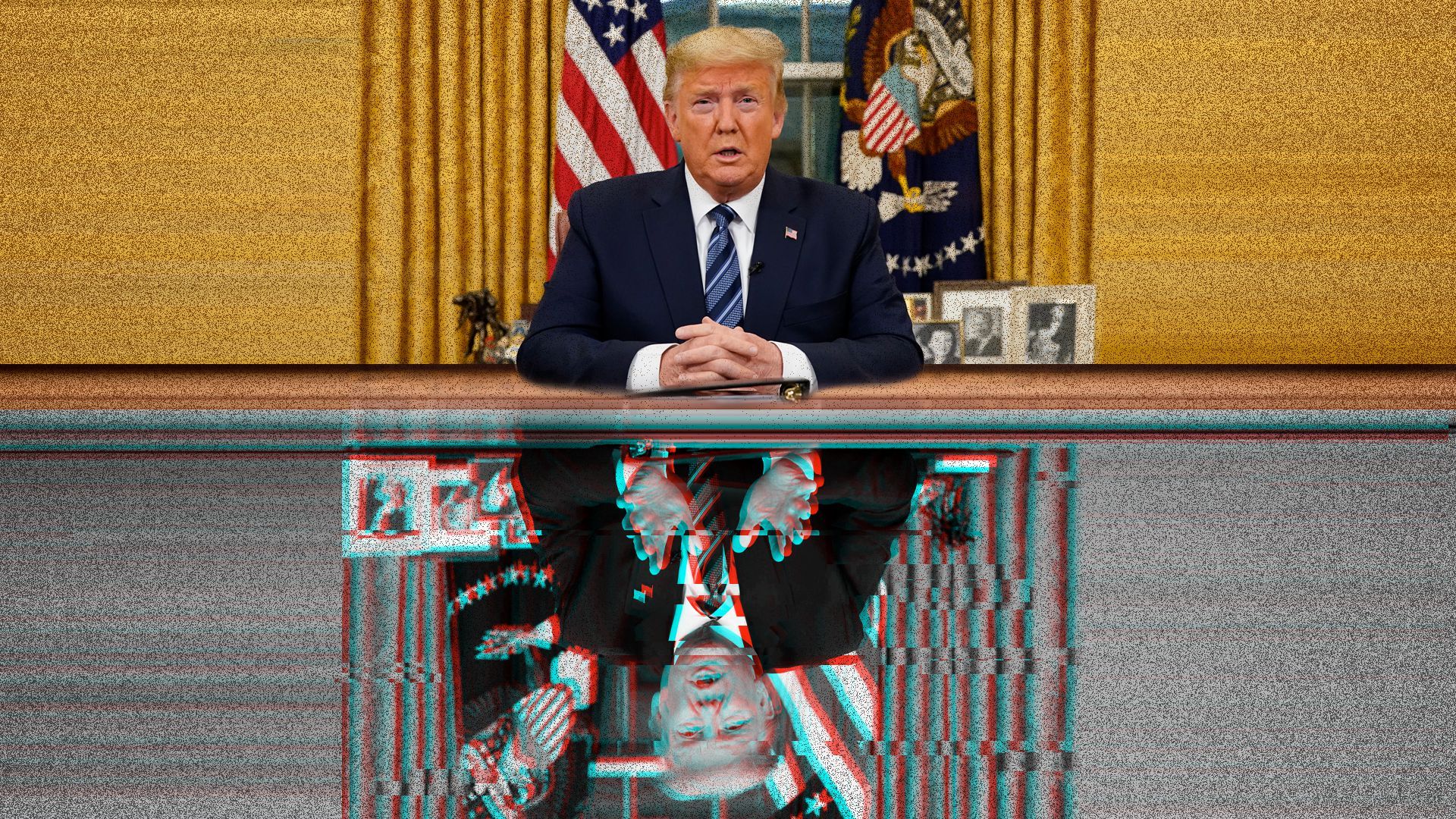Zach Dorfman

Last week's riot at the Capitol was many things, but perhaps chiefly it was the culmination of four years of information warfare waged against the country from within the Oval Office.
Why it matters: A sprawling disinformation campaign led by President Trump — and buttressed by his allies in the media, online and in Congress — has severely destabilized the U.S. and makes further acts of violence and would-be insurrection a near certainty.
The big picture: Transnational conflict and power plays increasingly take place online, in the form of hacking, digital spying and influence operations.
Disinformation is a central tool in this arena, allowing nation-states and their online proxies to undermine the civic health of a rival power by spreading lies and preying on societal fissures.
Many of the U.S.' cyber defenders devote their lives to beat back these threats from abroad, but that work has been persistently dwarfed by the president's own commitment to sowing destabilizing disinformation within the country.
Between the lines: The attack on the Capitol was a direct response to Trump's refusal — what historian Timothy Snyder has called the “Big Lie” of the Trump presidency — to accept the free and fair election of Joe Biden.
That refusal is just the end stage in a years-long, Trump-led construction of a reality built around an entirely parallel set of basic facts.
A significant plurality of voters now lives in that reality.
Undermining and delegitimizing his political opponents have been central to what is arguably — rivaled only by falsehoods about COVID-19 — the most damaging front of Trump's information war.
First was Trump’s “birther” conspiracy, which sought to delegitimize then-President Obama.
Then there was the Trump campaign’s exploitation of emails of his political rivals, which were originally hacked and dumped online by Russian intelligence services, and the president’s subsequent refusal to acknowledge Russia’s culpability in this covert action campaign. This sowed doubt in U.S. institutions and also invited future foreign electoral interference — including online misinformation campaigns.
Then there was the attempt by Trump and his close associates to coerce Ukraine into opening sham investigations into Joe Biden, whom Trump then correctly identified as his chief electoral rival.
Be smart: The Capitol siege made it viscerally clear that the U.S. is now fully caught in a self-cannibalizing cycle of information warfare that pits rival domestic political camps against one other.
Since these are different appendages of the same body politic, this acutely threatens liberal democracy. It is a greater long-term threat to U.S. national security than the 9/11 attacks, and the greatest challenge for America since at least World War II, because it is a crisis over the very legitimacy of electoral democracy.
Context: This weakening of shared reality between Americans — and dissolution of a sense of common national purpose — has been decades in the making, as historian Daniel Rodgers explores in his book “Age of Fracture.”
Americans of different ideological persuasions increasingly live in separate communities, consume different — and antagonistic — news sources, and communicate on different social networks, with basic cultural signifiers even becoming intensely (and often demagogically) politicized.
Yes, but: The Trump administration has overseen some key policy wins on beating back foreign informational and cyber warfare.
DHS’ Cybersecurity and Infrastructure Security Agency, in particular, launched high-profile anti-disinformation campaigns and sought to strengthen U.S. networks from outside attack.
NSA launched a Cybersecurity Directorate.
The U.S. military’s Cyber Command sought to “defend forward” against potential malign actors carrying out disinformation operations from abroad.
The catch: You can’t “defend forward” when the call is coming from inside the house. The real and important work done during the last four years to combat online disinformation and on other important national security topics was overshadowed and undermined by the president himself.
No comments:
Post a Comment